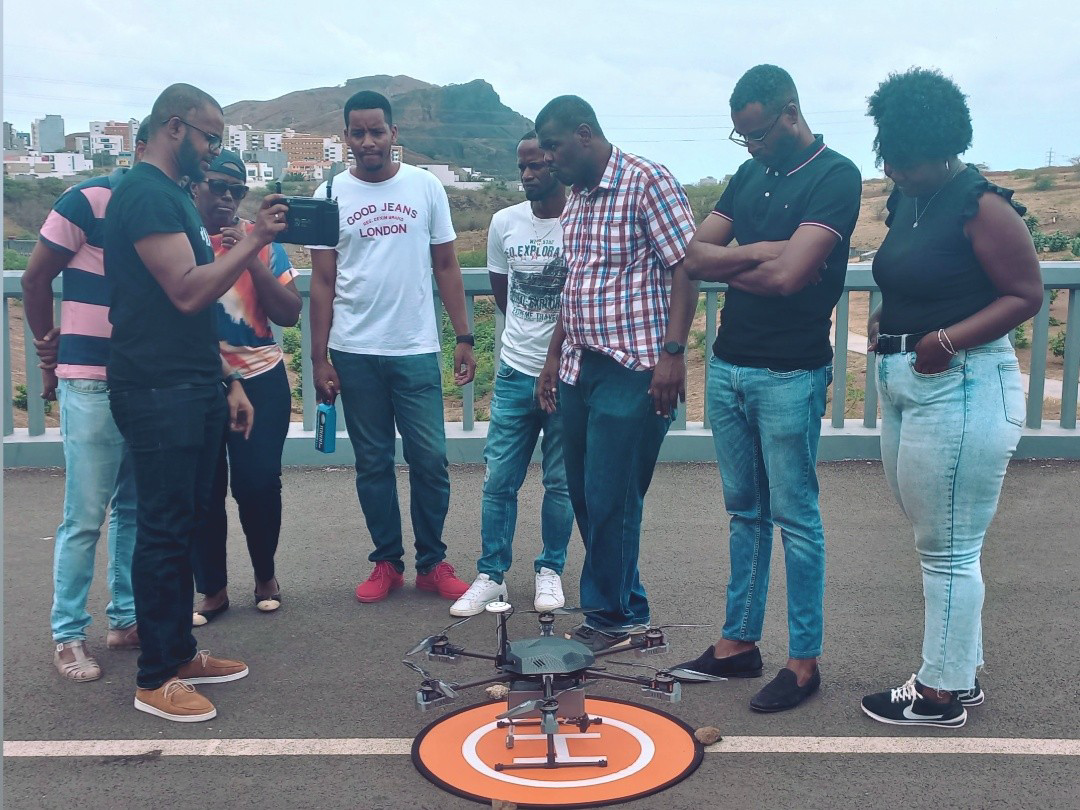Disclaimer:
Please be aware that the content herein has not been peer reviewed. It consists of personal reflections, insights, and learnings of the contributor(s). It may not be exhaustive, nor does it aim to be authoritative knowledge.
Learnings on your challenge
What are the top key insights you generated about your learning challenge during this Action Learning Plan? (Please list a maximum of 5 key insights)
1. The potential of precision agriculture: We are exploring how IoT and AI can facilitate precision agriculture techniques to optimize water use and adapt farming practices to severe drought conditions.
2. Data-driven decision-making: We recognize the power of data collected by IoT sensors and AI algorithms to make informed decisions, predict crop yields, and identify potential solutions to food insecurity.
3. Optimizing resource allocation: We are exploring how these technologies can help allocate resources efficiently, ensuring better distribution of resources such as water, fertilizer, and pest control, thereby increasing overall productivity.
4. Climate resilience: We are using IoT and AI to develop climate-resilient agricultural models that can adapt to changing environmental conditions, improving the sector's sustainability in the face of climate challenges.
5. Capacity building and adoption: We recognize the need to educate and train farmers and stakeholders to effectively adopt and implement these technologies and ensure their successful integration into farming practices.
Considering the outcomes of this learning challenge, which of the following best describe the handover process? (Please select all that apply)
Our work has not yet scaled
Can you provide more detail on your handover process?
Our work has not yet been scaled up, the project is still at an intermediate stage and has not yet reached a level of full implementation or widespread application across the agricultural sector. although progress has been made, the project is still at a pilot stage and has not yet achieved widespread or significant impact across the intended sector.
Please paste any link(s) to blog(s) or publication(s) that articulate the learnings on your frontier challenge.
Data and Methods
Relating to your types of data, why did you chose these? What gaps in available data were these addressing?
These types of data have been selected to cover different aspects of information collection and analysis, with the aim of filling specific knowledge or information gaps to support comprehensive decision making, innovation and problem solving. This type of data is critical for successful adoption and integration into farming practices.
Why was it necessary to apply the above innovation method on your frontier challenge? How did these help you to unpack the system?
Collectively, these innovation methods helped us unpack the system by providing different perspectives, enabling deeper understanding, fostering collaboration, generating insights, validating ideas through testing and facilitating iterative development. They enabled a holistic approach to complex challenges and helped us identify potential solutions to food insecurity and climate challenges, break down barriers and provide a structured framework for innovation and problem solving.
Partners
Please indicate what partners you have actually worked with for this learning challenge.
Please state the name of the partner:
University of Cabo Verde (UNI-CV) (Academia, Research)
What sector does your partner belong to?
Academia
Please provide a brief description of the partnership.
The collaboration with the University of Cabo Verde demonstrates a strong commitment to research and academic collaboration. The University's expertise in agriculture and technology, led by Sonia Semedo (Principal Investigator in the Artificial Intelligence for Agriculture and Food Systems programme), enhances the project's objectives, and facilitates the transfer of knowledge to the local community.
Sonia Semedo, a distinguished scientist, and researcher is well placed to lead this collaboration, which is further supported by the Arise-PP (African Research for Scientific Excellence) grant. The award of an Arise-PP (African Research for Scientific Excellence) grant underlines the project's commitment to advancing knowledge and promoting excellence.
In this partnership, Accelerator Lab has offered to fund the pilot project with a woman who owns agricultural land in Ribeira de São Filipe, with a focus on women's empowerment, and to help train researchers and farmers in drone management. The university, in turn, is responsible for the research that will lead to the creation of the system to be used in the pilot.
By fostering closer links with the university, the Accelerator Lab also gains access to expertise, research capabilities and resources that can further enhance the effectiveness and
impact of its initiatives in addressing the challenges facing Cabo Verde's agricultural sector.
Is this a new and unusual partner for UNDP?
No
Please indicate what partners you have actually worked with for this learning challenge.
Please state the name of the partner:
Prime Botics (private sector, robotics, drone)
End
Bonus question: How did the interplay of innovation methods, new forms of data and unusual partners enable you to learn & generate insights, that otherwise you would have not been able to achieve?
Innovative methods such as solution mapping, collective intelligence, AI-processed data, sensor data or social media insights provided deeper and broader insights into the challenge;
they helped to understand the complex interconnectedness within the system. This depth of understanding may not have been possible without these collaborative and visual frameworks.
In summary, the integration of these elements created a dynamic environment that facilitated learning and Insight generation by harnessing diverse perspectives, utilizing unconventional data, embracing iterative methodologies, and encouraging cross-disciplinary collaboration. This holistic and multifaceted approach enriched the learning process and fostered innovative solutions that might not have been found through traditional approaches.
Please upload any further supporting evidence / documents / data you have produced on your frontier challenge that showcase your learnings.
The closing form saves automatically or via the blue "save changes" button the top left. Thank you



 2Zero hunger
2Zero hunger 9Industry, innovation and infrastructure
9Industry, innovation and infrastructure 13Climate action
13Climate action 15Life on land
15Life on land 17Partnerships for the goals
17Partnerships for the goals
Comments
Log in to add a comment or reply.